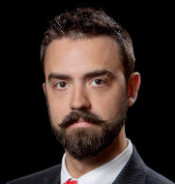Mentkowski: Opioid Cases Consolidated Into MDL
Monday, December 11, 2017 | 0
After considering a motion brought by the plaintiffs in 46 actions pending in nine federal districts across the country, the Judicial Panel on Multidistrict Litigation (MDL) entered an order on Tuesday, transferring those actions to the Northern District of Ohio for coordinated or consolidated pretrial proceedings.

Timothy S. Mentkowski
The cases represent only a fraction of those filed against the numerous manufacturers of prescription opioid medications recently. Centralization will likely swell what has already been a deluge of claims against the drugmakers.
The vast majority of cases filed to date have been brought by governmental plaintiffs — states, counties and municipalities — but the filing of claims by third-party payers has begun to pick up speed as well. The order does not confirm whether opioid lawsuits brought by employee benefits plans and insurers will also be centralized in the MDL (In Re: National Prescription Opiate Litigation, MDL No. 2804).
At least one third-party payer plaintiff, Philadelphia Teachers Health and Welfare Fund, opposed centralization. The fund, whose case is currently pending in the Eastern District of Pennsylvania, advised the panel that it intends to file a motion for centralization of third-party payer claims in a separate MDL.
The panel advised that it will address that motion, if it is filed, in due course. Given that one of the bases for centralization of the moving parties’ actions is that they are all cities, counties and states with similar claims, centralization of third-party payer claims in the same MDL may not be appropriate. Further, the amount of third-party payer cases is almost certain to grow rapidly over the coming year, and the likelihood that different issues will arise relating to those — as opposed to the city, county, and state claims — separate consolidation may be more prudent.
Either way, the current movement toward large-scale litigation against pharmaceutical companies that have harvested massive profits from the sale and distribution of opioids presents a good opportunity for the insurers, benefit plans and other third-party payers that have borne the cost of the consequences.
Unless and until Philadelphia Teachers Health and Welfare Fund or other third-party payer(s) move to consolidate, the status of third-party payer claims is somewhat in flux. In all likelihood, the question will not go unanswered for long.
As for the city, county, and state cases in general, consolidation and coordination is certain.
Timothy S. Mentkowski is a senior associate attorney with the Matthiesen, Wickert & Lehrer law firm in Hartford, Wisconsin. This blog post is reprinted with permission.







Comments